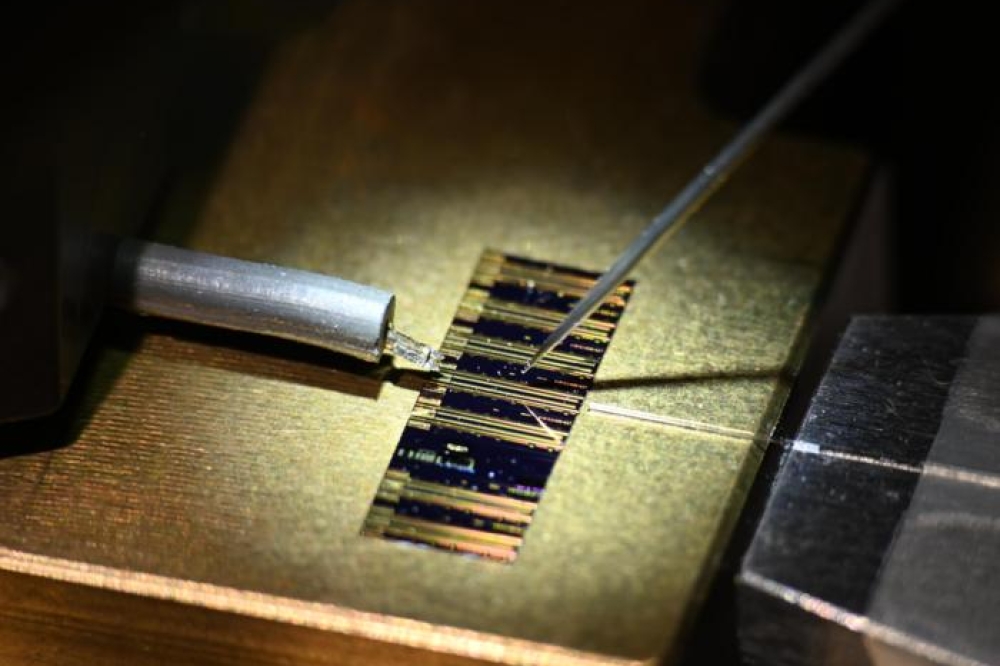News Article
Panasonic’s GaN Tetrahertz Detector is Small & Super Sensitive
Firm’s GaN (Gallium Nitride) Terahertz (THz) Detector does not require cooling and as such, is claimed to be more compact than its competitors’.
Panasonic has developed a Tetrahertz (THz) detector using a Gallium Nitride (GaN) transistor. The detector is claimed to exhibit the world highest sensitivity at room temperature. It is suited to applications in a variety of security or analyzing systems, which will greatly help the wide-spread use of such THz applications in the future.
The GaN detector forms a ‘plasma wave’ of the electrons, in which the electron density is fluctuated as a wave. The plasma wave resonates with the incident THz wave, which is detected as an electric signal at the GaN transistor.

The use of GaN with high electron velocity effectively increases the amplitude of the plasma wave and the extracted electric signal. The detector uses the gate electrode itself as a dipole antenna free from the loss in the transmission lines. In addition, the source and the drain electrodes of the GaN transistor are designed to work as parasitic elements for the antenna, which effectively confine the incident THz wave in the vicinity of the gate.
The employed metal-oxide-semiconductor (MOS) gate structure reduces the gate leakage current suppressing the leakage of the plasma wave around the gate antenna. The choice of the material together with a novel antenna structure successfully increases the sensitivity of the THz detector.
The fabricated THz detector using Panasonic's proprietary GaN technologies achieves a very high sensitivity of 1100 V/W at room temperature, while a conventional detector utilizing thermal conversion requires cooling of the device down to -270°C to maintain high enough sensitivity. The developed GaN-based THz detector does not require such cooling systems, making it more compact
Applications for 9 domestic and 1 overseas patents have been filed.































